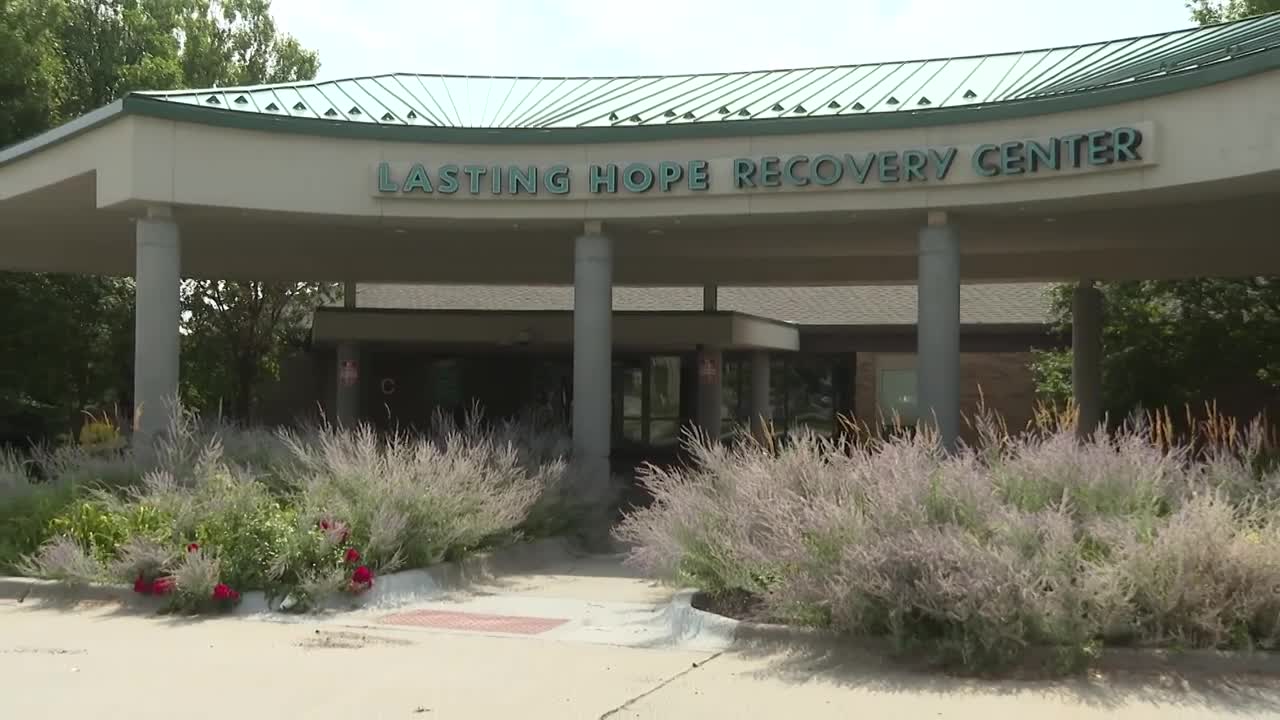OMAHA, Neb. (KMTV) — If something isn't bold or splashy, does it work? An initiative at Lasting Hope Recovery Center shows the answer is unequivocally (and refreshingly) - yes.
- Located near 25th Court and Harney Street, Lasting Hope Recovery Center helps 'patients experiencing mental illness and multi-occurring substance abuse disorders.'
- Workers noticed patients had immediate needs like ill-fitting shoes or no toothbrush, which stood in the way of overall treatment progress.
- They began donating themselves and crowd sourced items to fill a pantry and closet. Donations needed today include clothing in larger sizes, as well as personal care items. Drop-off at the outpatient entrance (to the left of the curved drive), or support the pantry and closet online through their Amazon wish list.
Continue reading for the broadcast transcript of this story.
They have longer titles, but simply, Jen Baker and Ali Kampe do social work.
"We are trained a little differently to think about people and their environment and access and, 'How can I help somebody with their anxiety when they don't have access to their basic needs?'" Kampe questioned.
She and Baker thought a shelf with those supplies inside CHI Health's Lasting Hope Recovery Center would help the folks in outpatient care, and that's where things started about a year ago.
"The coolest thing that overwhelmed me was the community, that was also in here, but in the Omaha community that have just run with it," Kampe shared.
With the team's support - and neighbors' - there's now a pantry and closet where everything is donated: personal care and hygiene products, books and games, clothes and more.
"Being able to keep warm or having shoes that fit properly so that they don't have issues with falling, you know, it just seems to boost their self-esteem," Baker explained of the impact.
It's addressing the immediate so they, as professionals, can help with the greater issue.
In Baker's case, she works with patients who've suffered trauma or are diagnosed with anxiety-based disorders.
"I think if I had to define mental illness in one word, I would say inconsistency. It just interrupts people's ability to do even the simplest things in their lives," she added.
3 News Now's Mary Nelson asked how - or even whether - access to simple things makes a difference if the big picture's daunting.
Kampe answered, "I think people that we see, we see them on the hardest days and times of their life when they're really struggling... It's overall well-being, you know? Part of recovery isn't just like the physical supplies - it's having a connection."
Knowing someone else cares and being able to care for yourself.
Because federal programs like SNAP, for example, don't cover the likes of toothpaste, soap or shampoo.
"So being able to help lift them up a little bit, even in a small way, I think really makes a difference, not just to them, but also to us," Baker said - elaborating that, as a team, they've felt more fulfilled.
Creating a space where you can come as you are and take what you need.
IF YOU OR SOMEONE YOU KNOW NEEDS HELP, CALL OR TEXT 988.
THE SUICIDE AND CRISIS LIFELINE IS FREE AND CONFIDENTIAL AND AVAILABLE 24/7.




